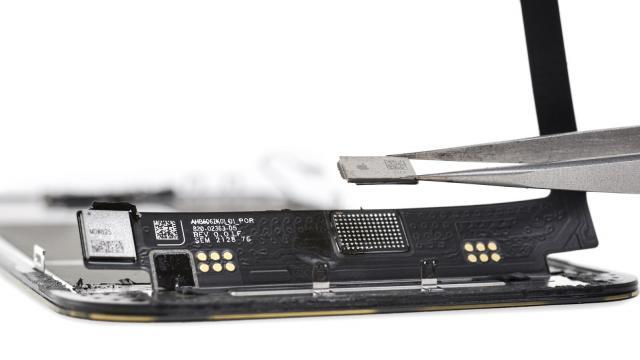In a typical move for Apple, the company from Cupertino chooses to disable your facial unlocking through the Face ID mechanism if you have repaired an iPhone 13 at unauthorized services. We have details below.
I have to admit that I am not surprised by the decision, especially since it is not the first feat of this kind, practicing it also on iPhones from the past years. Basically, if you don't repair or replace your iPhone 13 screen at an authorized service or using an authorized Apple technician, then Face ID will be blocked. It will no longer work at all, it will no longer allow you to authorize payments, log in to accounts and unlock the terminal, nor send animojis. iFixit discovered this after a dissection of a new generation iPhone.
They called it "a dark day for fixers, DIY enthusiasts and even professional service people". Screen repairs are some of the most common practices for a phone and it happens often because many people drop their phones face down. Many choose third party services, because they are either cheaper, more accessible, or have shorter waiting times until the product is repaired. The problem is that you can wake up without a vital phone function.

iFixit tested the phenomenon on multiple iPhone 13 units. The phone screen is associated with the terminal with a microcontroller, through a process called "serialization". Apple still does not offer a "pairing" option for these components. Authorized technicians have access to proprietary software, Apple Services Toolkit 2, and can make new screens work by logging the repair to Apple's cloud servers and synchronizing the phone's serial number with the screen's.
This way Apple can approve or reject each individual repair. Apparently there is a workaround, but it's very complicated, involving removing a chip stuck on the original screen and sticking it on the new screen.
